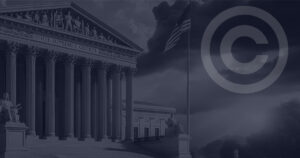 Trademarks can be a business’s most valuable assets. Apple’s mark is estimated to be worth more than $355 billion. The Amazon mark lags behind by a hair at $350 billion.
Trademarks can be a business’s most valuable assets. Apple’s mark is estimated to be worth more than $355 billion. The Amazon mark lags behind by a hair at $350 billion.
When the value of a company’s trademark can be so high, it makes good sense to carefully develop, grow and protect marks.
Trademarks can take many forms but first and foremost a mark must serve the purpose of identifying the source of goods in the minds of consumers. Letters, numbers, domain names, abbreviations, nicknames, words, slogans, color, alone or in combination with other colors, and designs can serve as marks.
The configuration of products or packaging, called “trade dress” also can serve as a mark if not functional. Generic terms (computertraining.com) can never serve as a trademark because they remain available for anyone to use. Marks that are merely descriptive of the goods (Ever Sharp) must acquire secondary meaning, being an association in the consumers’ minds between the goods and their source.
“First come, first served” is the basic rule of acquiring rights in a mark. Ownership of a distinctive mark goes to the first to use it in commerce; ownership of a descriptive mark belongs to the first mark that acquires secondary meaning through use. Continue reading →
 Vicarious and contributory liability are terms well-known to every tort lawyer and law student. They should also be familiar to business owners and managers.
Vicarious and contributory liability are terms well-known to every tort lawyer and law student. They should also be familiar to business owners and managers.
 Trademarks can be a business’s most valuable assets. Apple’s mark is estimated to be worth more than $355 billion. The Amazon mark lags behind by a hair at $350 billion.
Trademarks can be a business’s most valuable assets. Apple’s mark is estimated to be worth more than $355 billion. The Amazon mark lags behind by a hair at $350 billion. A pal and I walked across the parking lot at the Maryland State Bar Association conference last month looking for a lunch joint; the topic of our conversation was whether and why copyright and trademark registrations are necessary and beneficial.
A pal and I walked across the parking lot at the Maryland State Bar Association conference last month looking for a lunch joint; the topic of our conversation was whether and why copyright and trademark registrations are necessary and beneficial. Earlier this month the U.S. Supreme Court answered the question of when a copyright plaintiff must file an infringement claim or be barred from suing by statute of limitations. The case was Warner Chappell v. Nealy Music, Inc.
Earlier this month the U.S. Supreme Court answered the question of when a copyright plaintiff must file an infringement claim or be barred from suing by statute of limitations. The case was Warner Chappell v. Nealy Music, Inc.